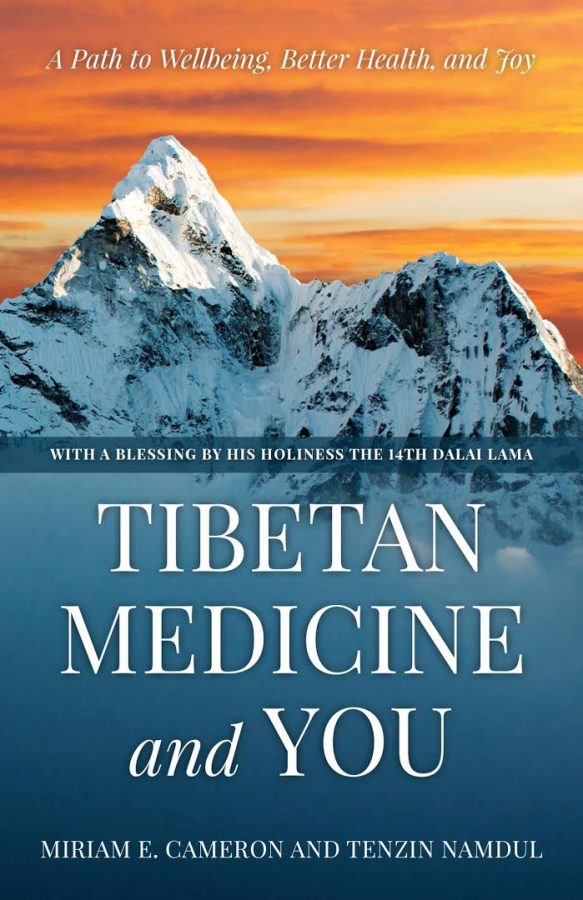“Breathe in suffering, breathe out compassion.”
Dr. Miriam Cameron, a registered nurse and faculty member at the University of Minnesota’s Center for Spirituality and Healing (CSH), used this phrase to explain Tonglen meditation. This form of meditation is one of the practices Cameron teaches in her class, Traditional Tibetan Medicine: Ethics, Spirituality and Healing.
Dr. Tenzin Namdul, a Tibetan medical doctor and faculty member at CSH, aids Cameron in teaching the course. Together they wrote “Tibetan Medicine and You: A Path to Wellbeing, Better Health, and Joy.” The textbook was published in January 2020 with a blessing from the Dalai Lama, the highest Tibetan spiritual leader.
Minnesota is home to the second-largest Tibetan American refugee community in the United States, with dense populations concentrated in Minneapolis.
Tibetan medicine is focused on individualized care with customized treatment regimens, diet and behavioral models. Cameron said she believes Tibetan medicine is far ahead of mental health care, such as therapy, in “healing” an individual’s mind. Talking through a problem or feeling about something may not always be the right fit for an individual’s needs, she said.
“Healing people doesn’t necessarily mean pharmaceutical drugs,” Namdul said.
Spring is a great time to evaluate which relationships, behaviors and thoughts are toxic for an individual, Cameron said.
“We need to throw out the garbage,” she said. “If I am leading a happy, healthy life, I have more energy to reach out and care about other people and do what I can to help. But if I’m just focused on myself, that’s a very unhappy life and people have to take care of me.”
Spring is an important time for examining how an individual’s life is changing internally and externally, especially in regions like the Midwest with long winters, Namdul said. “Airing out” your mind after a year of uncertainty can help clean the mind and body of lingering negativity.
Namdul’s advice to students is to “recognize the changes that are happening to oneself and outside in the environment and to use that energy and power to help your academic performance as well as your health.”
Claire Stuckey, a graduate student and recently retired staff member at the University of Minnesota’s Law School Library, said many natural temperature changes occur with the seasons.
“It’s pretty hard to go through life and not get out of balance,” she said.
Stuckey is re-taking the Tibetan medicine class again 15 years later to implement these practices into her part-time health coaching and psychotherapy.
“Tibetan medicine is very adept at helping people realize their true nature and to be more aware in a holistic way of how their true nature might be moving in or out of balance. And then it teaches how to intervene and rebalance,” she said.
To help individuals achieve happiness, Tibetan medicine teaches them to mentally heal and transform the three “mental poisons”: anger, confusion and greed. Engaging in these forms of negative thinking means an individual will most likely make choices that negatively impact their mind and body, Cameron said.
Contemplating how to create happiness and recognize what creates suffering are the first steps toward cultivating a healthy life, she said.
Orianna Olson, a graduate student currently taking the class, said her biggest takeaway was recognizing she has the ability to choose to live a happy and healthy life despite what is happening around her.
The use of “constitutions,” or energies, has helped her better understand herself, she said. In Tibetan medicine, there are three energies: heat, cooling and movement. Individuals have all three, with generally one more dominant than the others, Olson said.
“I equate the constitutions to our personality tests,” she said.
Tibetan medicine focuses on balancing these energies, such as doing hot yoga if one’s cold energy is too strong or making different food choices.
“We’re holistic beings,” Stuckey said. “Tibetan medicine is so integrative in terms of addressing all aspects of who we are, how we behave with the literal taking care of ourselves physically and with diet, or emotionally with our state of mind.”














ginevsky
Mar 24, 2021 at 4:50 pm
Dr. Miriam Cameron has been a caring and generous teacher of traditional Tibetan Medicine at the University for more than 20 years. She and Dr. Tenzin Namdul have a serious intellectual partnership going back to 2005. The teachings of Sowa Rigpa focussing upon the origins of illness in the mind are particularly timely during this period of covid stress.